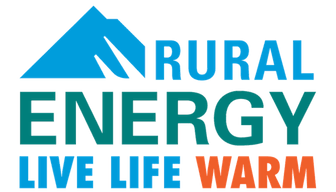What Are the Best Off-Grid Heating Systems?
For those living in rural or remote areas, staying warm without access to traditional utility services can be a challenge. Off-grid heating systems provide a reliable and efficient way to maintain comfort in homes, cabins, and even tiny houses without depending on electricity or centralized fuel sources. When considering your primary off-grid heating source, take the time to conduct thorough planning, research, and an upfront cost investment in that system. Whether it’s a traditional wood stove, a propane wall heater, or even the equipment you may need for harvesting wood, planning it all out before you build will save you time and money down the road.
Wood Stoves
Wood stoves have been a traditional heating source and remain a popular choice for off-grid homes. These stoves burn firewood to generate heat, offering a reliable and cost-effective solution, especially for those with access to ample firewood. They provide consistent, high-output heat and work well in cold climates. Firewood is often inexpensive or free, making it a budget-friendly option. However, wood stoves require regular maintenance and chimney cleaning, need proper ventilation, fire safety measures, and demand significant effort in storing and replenishing wood supplies.
Pellet Stoves
Pellet stoves operate similarly to wood stoves but use compressed wood pellets instead of traditional logs. These stoves are designed for efficiency and ease of use, often featuring pellets that are automatically fed into the stove, greatly reducing the workload and the need to tend to a fire in the middle of the night. They can be either freestanding or insert models, depending on whether they are placed on the floor or inside an existing fireplace. A pellet stove can also have a dedicated blower that distributes the heat more effectively throughout the home or a small stovetop fan that operates from a heat differential.
Propane and Natural Gas Heating
For those who prefer a more hands-off heating solution, propane and natural gas systems provide a convenient and powerful option. These heating systems can include furnaces, space heaters, and fireplaces, all of which offer efficient, consistent heat. They require little maintenance, provide instant, controllable warmth, and can also be used for cooking and water heating. However, homeowners must arrange for regular fuel deliveries, and propane and natural gas costs can fluctuate. Additionally, these fuels are not as sustainable as wood or solar heating alternatives.
Direct Vent Propane Wall Heaters
A direct vent propane wall heater is similar to a ventless wall heater in that it burns propane gas to produce heat, but this method vents it directly outside through a wall. A direct vent propane wall heater consists of a pilot light that stays lit, a main burner where the propane gas is ignited, and a vent where the combustion gasses are expelled outside. A direct vent propane wall heater can also have a fan or a blower that distributes the heat throughout the room.
Choosing the Right Off-Grid Heating System
When selecting an off-grid heating system, it’s essential to consider factors such as climate, fuel availability, installation costs, maintenance requirements, and energy independence. Some key considerations include:
- Climate: If you live in an extremely cold region, a high-output heating system like wood or propane may be necessary.
- Fuel Availability: Having easy access to firewood, pellets, propane, or other fuel sources can make a significant difference in overall convenience and cost.
- Upfront Investment: Some systems, like solar and geothermal, require higher upfront investments but offer long-term savings.
- Maintenance Requirements: Wood and pellet stoves require regular upkeep, while propane and natural gas heaters demand less frequent maintenance.
- Sustainability: If sustainability is a priority, renewable energy sources like solar or biomass heating may be the best option.
Off-grid heating systems provide a practical and efficient way to keep homes warm in remote areas or during power outages. Whether you opt for a classic wood stove, a high-tech heat pump, or a solar-powered system, the right choice depends on your climate, fuel access, and budget. By investing in a well-designed heating solution, you can enjoy a warm and comfortable home while reducing reliance on traditional energy sources.
If you’re considering an off-grid heating system, take the time to evaluate your needs and explore multiple options to find the best fit for your lifestyle. With the right system in place, you can achieve energy independence and stay cozy even in the most remote locations.
